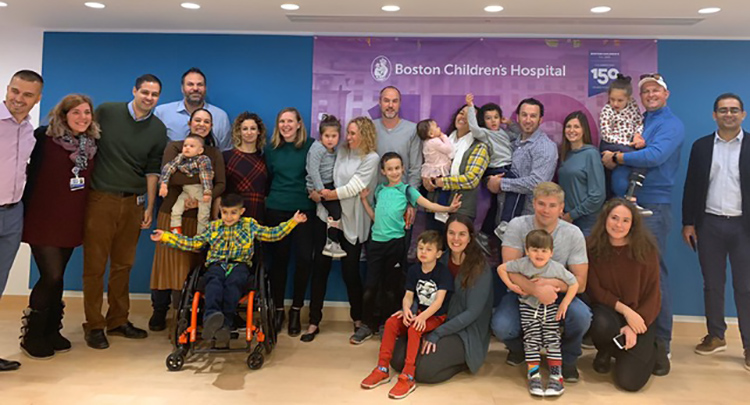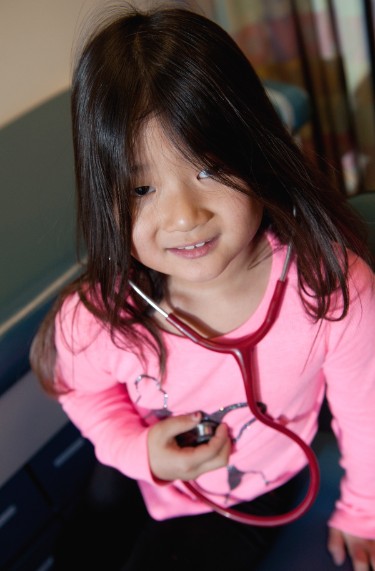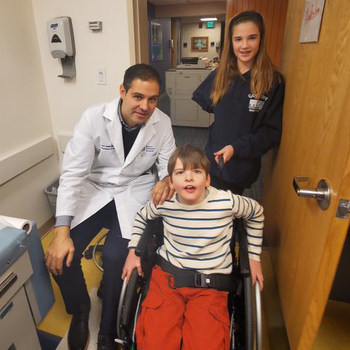Patient Engagement
Patient Perspectives
We Listen
That which is important to our patients is important to us.
- We listen closely to our patients. We develop trusting relationships with families, solicit their feedback and focus on outcome measures that are meaningful to the patient community.
- We receive ongoing feedback on research design and prioritization from our Family Advisory Council.
- We champion equity, diversity, and inclusion in academic and research activities.
- We maintain close working relationships with patient advocacy groups. Learn about our alliances with patient advocacy groups here.
- We partner with patient advocacy groups to hold scientific and family meetings.
- We align with the patient-focused drug development guidelines issued by the US Food & Drug Administration.
To learn more about the US Food & Drug Administration’s policies on patient-focused drug development, you may refer to the “FDA Patient-Focused Drug Development Guidance Series for Enhancing the Incorporation of the Patient’s Voice in Medical Product Development and Regulatory Decision Making”.
Neuroscience Family Advisory Council
(NFAC) Research Subcommittee
The purpose of this group is to ensure and to guide the integration of the patient voice into the design of our research projects. The committee is co-chaired by Kira A. Dies, Executive Director of the RSZ TNC and Sylvia Lewinstein, Program Manager for the Boston Children’s Hospital IDDRC as well a a parent representative, and includes eight patient/family members who are seen in the Neurology Department.
The role of the NFAC research subcommittee is to:
- Articulate patient/family priorities, with added contributions from our Patient Advocacy Group partners.
- Ensure that our studies are designed to optimize child/family friendliness.
- Comment for readability on our consent forms and research outreach communications.
- Contribute ideas for RSZ TNC programming, webinars and family meetings.
- Engage in brainstorm sessions on issues like improving participant diversity in research.
– Kasey Edwards, CureAP4
Patient Advocacy Conferences
The Rosamund Stone Zander Translational Neuroscience Center sponsors conferences that bring together patients, caregivers, researchers, clinicians, and other stakeholders to share the latest research, bring forth family input and inform future directions. We have funds set aside to help facilitate these valuable conferences which connect researchers and the patient community, encouraging new collaborations and patient-centric research.
Every year we collaborate with various patient advocacy organizations to help organize or co-host meetings. For example, In February 2021, we hosted the International Kleefstra Syndrome Family and Scientific Inaugural Conference in close collaboration with the Radboud University in the Netherlands, and the iDefine patient advocacy group. Over 500 stakeholders participated in this day-long conference. Past conferences that we have co-hosted are listed on our Events Page.


Patient Registry
This Registry supports dozens of studies of childhood development from infancy through adulthood. The Registry is the result of collaboration among the Division of Developmental Medicine, Department of Neurology, and the Rosamund Stone Zander Translational Neuroscience Center. Together, we work to improve outcomes for children and families with conditions such as autism, ADHD, epilepsy, sleep disorders, and many others.
By enrolling in our Participant Registry, you allow us to keep you informed of research and clinical trials for which your family members may be eligible.
Clinical Trials Finder
You and members of your family may be eligible to contribute to the advancement of understanding about health and disease by participating in clinical trials. The Boston Children’s Hospital Clinical Trials Finder tool allows users to sort for disease, age, and other eligibility requirements for studies led by our research faculty.



